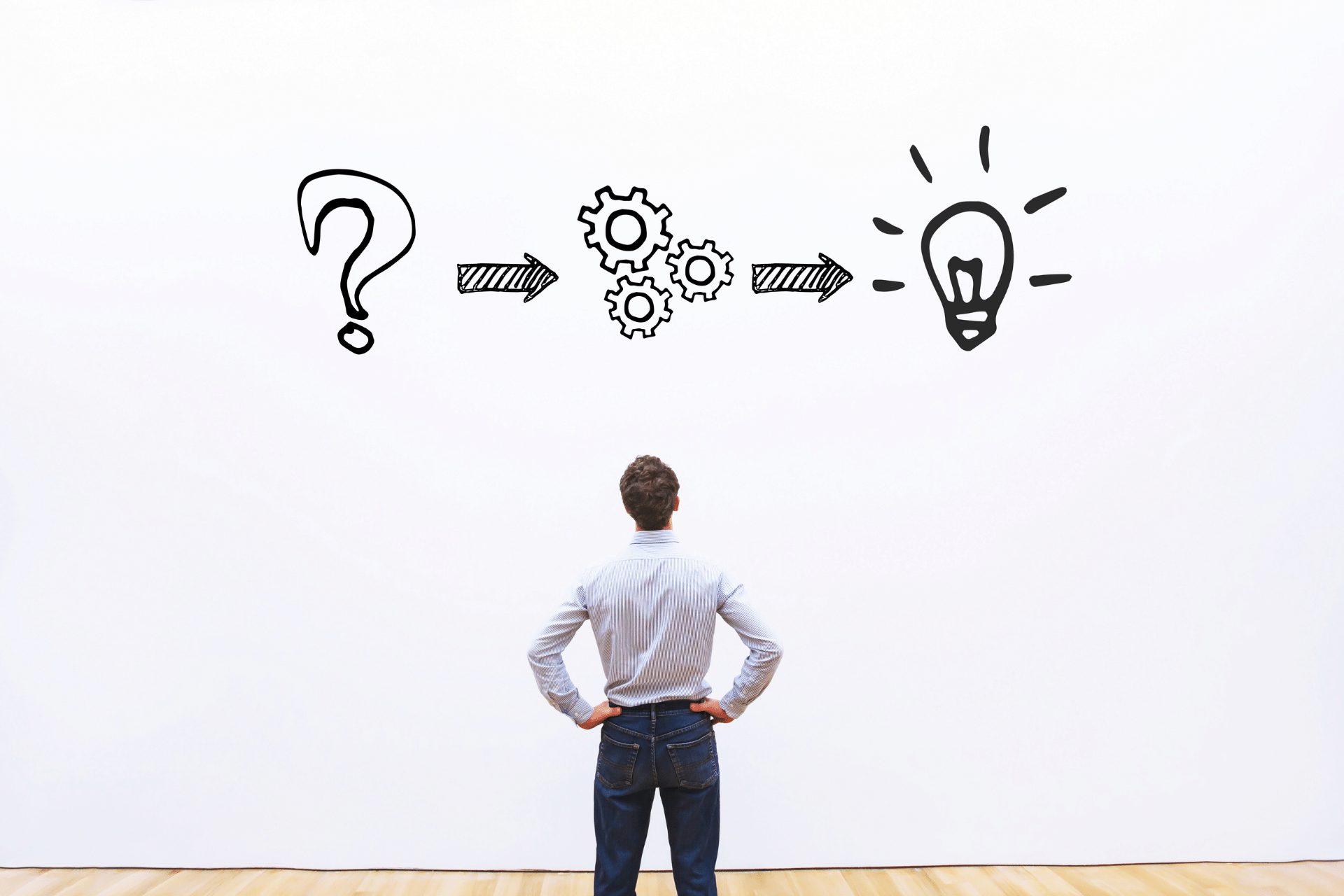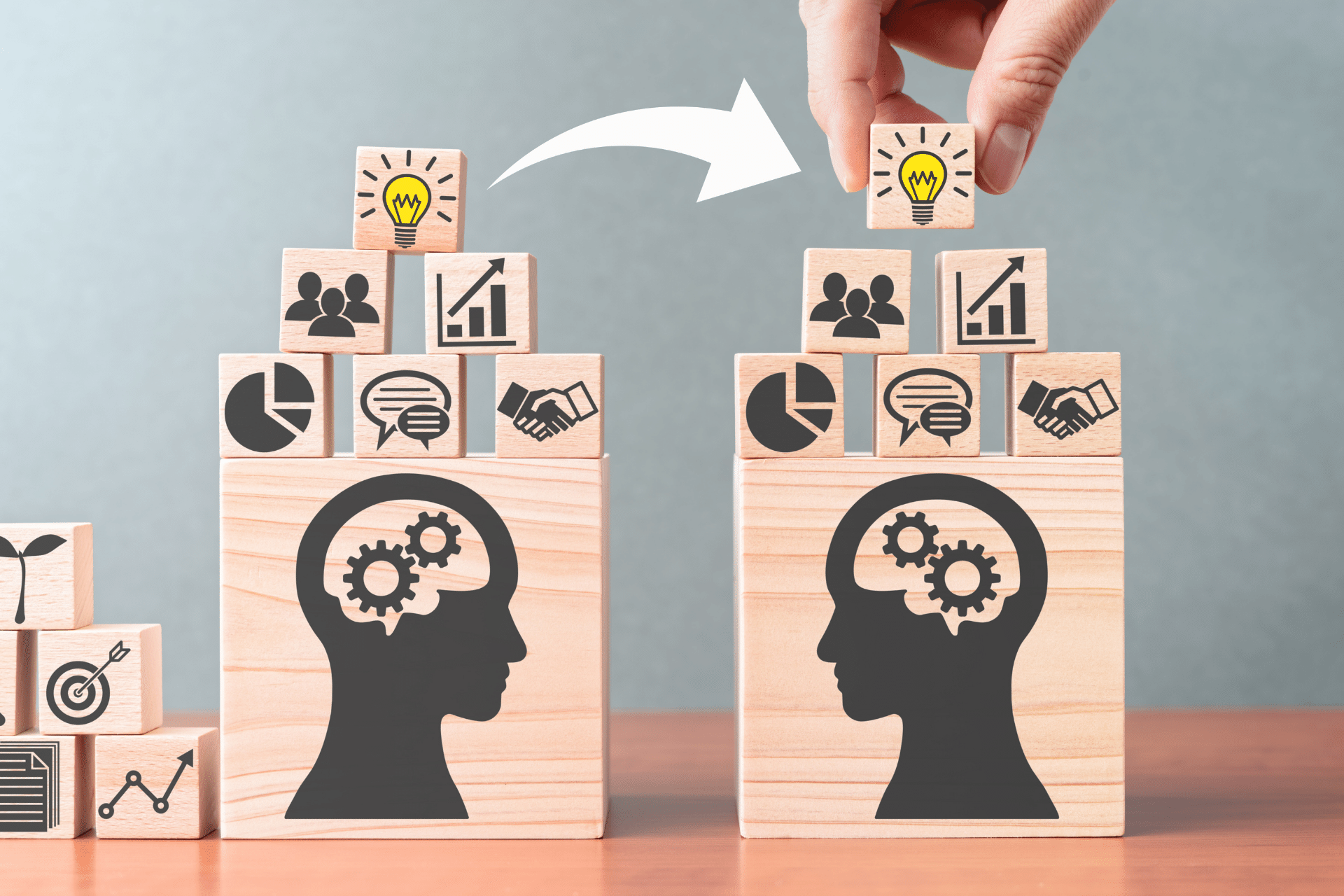Put your growth on autopilot
GrowSurf is modern referral program software that helps product and marketing teams launch an in-product customer referral program in days, not weeks. Start your free trial today.
When it comes to running a successful and growing business, sales skills can't be avoided, especially for those who run businesses in the B2B (business-to-business) sector. B2B sales require a unique set of skills compared to B2C due to factors like:
It’s no secret that when starting a business, a team that has founders who possess strong sales skills will have a far easier ride than one that has to learn everything from scratch. Sales skills, and especially B2B sales skills, take time to develop and learn. They don’t come easily to everyone but they are certainly skills that are worth investing in and persevering as they could make the difference between a successful business and a failed one.

It's worth defining what we mean by B2B sales. B2B sales are business-to-business sales which happen when one company's sales team sells their products or services to another business that requires them in order to deliver their own product or service. This is no straightforward process, as it requires a special set of skills like:
Soft skills, also known as personal skills, are a massive part of B2B sales. They’re skills that some people have naturally and they make up part of their personality, the type of skills that you see people listing at the top of their CVs when applying for jobs. These are the skills that are difficult to test or quantify as they are more the type of person that you are. That doesn’t, however, mean that they can’t be developed, learnt and improved on.
Thinking about how others feel
One of the trickier soft skills to learn, and one which some people naturally have a lot of and others have limited supply. Empathy is the ability to put yourself in someone else's shoes, think about how they might be feeling in a given situation and considering their emotions. The followup to this is the ability to be compassionate towards them following your thought process. In B2B sales, empathy is crucial for understanding a client's challenges, goals, and decision-making processes within their organization. According to the University of Cambridge, empathy allows you to "see things from the other person's point of view, and to understand how they think and feel."
The empathy skill, generally speaking, massively helps when it comes to B2B sales. If you can put yourself in your customer’s shoes then you’re in a position where you can; imagine what hang-ups they might have, understand their pain points, formulate a solution to their problems, and more. An incredibly useful skill to have, but is it one which can be learned?

There are a few ways that you might consider developing empathy skills, here is our top two:
Talking to new people- We don’t necessarily mean striking up a conversation in a bar and sticking to small talk. Empathy skills can be improved by genuinely asking deeper questions and listening intently to the answers. Simply thinkingabout how they feel can lead to a shallow empathetic response, whereas discussing it can have a profound effect on you.
Be someone else- On a temporary basis. There’s a saying, “Don’t judge others until you’ve walked a mile in their shoes”meaning that until you understand what they put up with and go through on a daily basis, you’re not in a position to pass judgement on why they act the way that they do. If you meet someone who is acting in an unusual way, consider learning more about why they might be and spend time understanding their background.
Listening as well as speaking
People often mistake being a good communicator to mean that they can talk endlessly about anything at all. Rather, communication is all about being able to listen, interpret and act on what has been heard. In a similar vein to empathy as a skill, good communicators will listen, consider and then retort rather than replying immediately without considering the implications of their words.
A good communicator will also alter their voice, tone and vocabulary depending on the person that they are talking to. In B2B sales, this means that one would approach each business on an individual basis. One business may benefit from a more informal, relaxed approach, whilst another (potentially even purchasing the same product) would require a more formal conversation.
Improving the communication skill comes with practice in real life situations. Role play works to an extent but often ends up being more stilted and a cringey afternoon of team discussions. Test communication styles with different businesses but also take time to observe how other people communicate with each other, then make mental notes of when conversations go well and not so well. Then reflect on, evaluate and develop from there. Active listening techniques like asking clarifying questions, paraphrasing, and avoiding interruptions can also greatly improve your B2B communication and rapport building.
Learning a thing or two
When working in a growth environment, chances are that you or your employees won’t have every skill required to allow the business to reach its full potential. This is where coaching comes in. This could be from professional development coaches brought in from outside the company, it could be from management or it could be peer to peer coaching. Whoever the practitioner is, the person receiving the coaching needs to; be open to the material, take time to reflect on how it could be applied to their own processes, and evaluate their progress once testing has been completed.
Coachability can also be applied to the internal evaluation process of each business. Most businesses will undertake a process of employee review on a regular basis (quarterly or annually usually) and the ability for employees to take on feedback is incredibly important. In the B2B world, coachability extends beyond just taking feedback - top sales reps are also constantly seeking out mentors, joining peer groups, and proactively finding ways to upskill themselves on new sales methodologies and best practices. As Salesforce notes, "The best reps are students of their craft, always looking for ways to improve."

From a B2B sales perspective, coachability works within each business whereby new salespeople are coached by veterans but don’t forget that there are opportunities to accept coaching (even if it isn’t branded as such) from prospective clients. If everyday is treated as a school day, and opportunities to learn new skills are appreciated, professional development will follow quickly.
Emotional intelligence shares a great deal with empathy, but focuses on your ability to control your own emotions whilst understanding and reacting to others. Effectively, emotional intelligence is one of the building blocks of relationships, and relationships are at the core of B2B sales. As Forbes notes, "In the B2B world, emotional intelligence allows salespeople to better understand the needs and motivations of their clients and build stronger relationships with them." High EQ salespeople can read between the lines, manage their reactions, and navigate complex organizational dynamics.
There’s a chance that the marketing side of the business will already be engaging in emotion focused campaigns by building out an emotional marketing campaign. On that basis the skill is all the more important as prospects will expect a level of emotional intelligence from the sales team when they get in touch.
Emotional intelligence is another soft skill that is difficult to develop and one which some people are naturally good at and others not so much. There are, however, a few practices that can be done so that emotional intelligence can be improved or, at least, considered.
Take a look at your feelings- when you find yourself feeling a particular way, label it and think about why you might be feeling this way. Be considerate of the words that you’re using, with an attempt to minimise negative labels.
Appreciate the way that you’re feeling- How you feel is how you feel and is a core part of your personality. Appreciate that you’re feeling a particular way and be honest with yourself. Being able to do this will help you do the same when considering how others are feeling.
Think about how you look to others- Be curious about how you might look to others when you act in a certain way. If you like what you see then you can reinforce that emotion, if you don’t then you can evaluate yourself and alter accordingly. This practice better allows you to understand others’ feelings and emotions rationally.
Be confident - Easier said than done, but by simply feeling and internally saying that you are confident can make you more confident. Look back on successful endeavours and remember that it can be done. This is especially true when considering cold outreach to other companies. Few people enjoy reaching out to companies cold, but with each passing time it gets easier and confidence grows.
Problem solving can mean all manner of things, but in the B2B sales sector we can take it to mean finding a solution to a customer's problem. A solid sales technique is to use what is known as consultative selling. This method always puts the relationship with the customer first with a focus on openness and communication, even if that means that the solution for the customer isn't necessarily your product or service. If the business is already focused on relationship marketing then consultative selling will fit perfectly with the same ethos. As RAIN Group highlights, "Consultative selling is about taking responsibility for understanding the buyer's needs from their perspective and collaborating to develop a solution."
By employing consultative selling you are essentially guaranteeing good customer service. When the customer is put first their needs are met regardless of outcome from a sales point of view the reputation of the company will soar. And more often than not, your product or service will fit their requirements.

Teamwork is a skill that many claim to possess but few master. Even after many corporate away days building shelters, running races or cooking meals together. In the sales world, few people are hugely successful by working entirely on their own. The most successful are those who leverage and collaborate with those around them. When evaluating your product or service a prospective customer may interact with many different people across the organisation. Each of those people is part of the team and is working together towards the sale even if they aren’t the actual salesperson themselves.
Developing a teamwork skill comes from practice working in a team. Those who haven't had that opportunity before may initially resist and want to go it alone. Therefore it is important management creates a culture of support, positivity and open communication within the organization to properly foster a teamwork environment. In complex B2B sales environments with multiple stakeholders, handoffs, and cross-functional collaboration required, teamwork is absolutely essential. The ability to work well in a team setting is one of the most important skills for sales reps to have.
Flexibility can be interchangeable with adaptability. When presented with a particular situation it takes flexibility to mould to what is required, especially when the situation is unusual and doesn't fit the strategy that is usually followed. In the fast-paced B2B world, the ability to pivot quickly is critical. As Salesforce points out, "Top sales reps are able to quickly adapt to changes in strategy, product, and process without missing a beat." Whether it's adjusting to new buyer behaviors, new competitors, or internal changes, flexibility allows B2B sales reps to stay agile.
In B2B sales, this is a particularly useful skill to possess. The field will be constantly evolving, and the business (as it grows) will likely bring in new technology, new staff, new methods of working and new customers. Each change means that it will be necessary to adapt and be flexible to the new working environment.
Hard skills are those skills that can be taught through training and experience. They are skills that you can sit down, read about, practice and, eventually, master. The following hard skills are the baseline required for B2B sales success. There are, inevitably, more varied and niche specific skills that will be required for specific sales positions but the following is applicable to almost every sales position.
The process of determining whether a potential customer is likely to convert or not is conducted through a qualification process. This will vary depending on what is being sold but every business should have a series of questions (and these can be internal rather than explicit) that are answered to provide the likely outcome of a sales process with a particular client. In B2B sales, effective qualification is critical due to the lengthy sales cycles and higher deal values involved. As HubSpot advises, "A great qualification process will help you prioritize the most valuable leads and opportunities so you can spend more time closing deals and less time chasing dead ends."
There comes a point, eventually, where a salesperson will naturally know very quickly whether a lead is worth pursuing or not. There is also a chance that another team member higher up in the funnel / buying process will sort the prospects based on initial reactions and conversations. But these may still need to be qualified by the sales team.
Qualifying prospects is important because the time spent is precious and wasting valuable resources (and the sales team’s time is one of the most valuable resources out there) can be drastically reduced through the qualification process. Furthermore, if the sales team is only looking to convert qualified prospects, chances are that the conversion rate will be considerably higher.
A hard skill that needs to be re-learnt each time the sales person changes company or position. There is no exchange for cold, hard knowledge about the product or service that is being offered to the customer. Sales people need to be able to answer immediately and authoritatively. After all, presenting yourself as an authority on the product or service makes the prospect far more likely to be persuaded to buy.

No sales process should be started until the product or service is known inside out. One of the best ways to develop the skill is by testing the product yourself, asking others in the company, examining potential customer pain points and understanding how the product can solve them, and then testing that knowledge with other members of the team. Remember, you will garner far more respect from customers if you request time to find out the answer rather than bluffing. As Salesforce emphasizes, "Top sales reps have an in-depth knowledge of their company's products and services, as well as those of their competitors." Deep product expertise allows B2B sales reps to provide consultative guidance and position offerings as the ideal solution.
It could be said that a good sales person is one which allows others to do the work for them and still makes successful sales. This is where a strong referral system, properly used, can turn a good sales person into a great one. The process begins by curating a strong relationship with an initial or existing customer. This will mean focusing on more than just the close of a sale, and it definitely means continuing that conversation and relationship beyond the commission. As Forbes highlights, "Referrals are critical in B2B sales because they help salespeople get meetings with prospective customers that they otherwise would not be able to get."
Once a positive relationship has been curated with a client, the sales person will want to encourage the customer to become a participant in the referral program. The aim being that the customer will then bring in additional prospects to the company in exchange for an incentive or two. These sales are often then linked back to the original salesperson who facilitated the initial sale. The overall focus is for an increase in leads generated for the business. For more detail, have a look at our detailed B2B referral program guide.
In B2B this is a somewhat different skill, the basic process is the same but there is a great focus on networking, building relationships with companies rather than individuals and spending time with businesses in an offline capacity. Salespeople may not leverage tactics such as influencers but are likely to take time to visit clients, wine and dine them, and nurture relationships over time.
This whole process is taken to the next level when a strong referral program is in place. The easier the system is to use, both for the salesperson and the participant, the more likely it is to be used. Thankfully, there are pieces of software and businesses, such as GrowSurf, that automate and facilitate this process making it a breeze to use.
Salespeople will need to spend time researching not only their potential customers but also the market as a whole. Understanding the competition, what they are offering, how they are offering it and who they are offering it to will give an advantage over those who aren't spending time doing so. Thorough research is especially crucial in B2B, where Gartner finds that the typical buying group for a complex B2B solution involves 6 to 10 decision makers. Having a comprehensive understanding of the market landscape allows sales reps to effectively position their offering and navigate each stakeholder's needs.
Research might feel unproductive at first, but over time this base of knowledge and understanding will massively inform and influence future processes and interactions.
The age old adage is that time is money, and in sales that couldn’t be closer to the truth. There are, thankfully, endless tools to help those who struggle with time management to overcome the potential pitfalls. Time trackers, project management boards such as Asana or Monday, and simply checking in with management can make all of the difference.
It is also worth considering the value of propositions versus the time spent nurturing the sale. If a salesperson is spending the same amount of time on a $500 sale as they would a $5000 dollar sale then something is wrong. There should be a standard measurement that then scales depending on the revenue that could be generated, with the larger accounts having more time dedicated to them. As Salesforce advises, "Top sales reps know how to prioritize their time by focusing on the most valuable opportunities and accounts." In B2B sales with high deal values, time management and opportunity prioritization are critical skills.

As mentioned above, relationship building is at the heart of all good salespeople's tactics. This is even more important in the B2B sector, where salespeople are the face of entire businesses. A strong relationship, built and developed over time can massively increase the lifetime value of a customer. The relationship starts from the first impression, all the way through the initial sale, and, crucially, throughout their account process. A relationship only really starts once the sale has been made, after that it can be built, especially when one considers the referral opportunities. As Salesforce notes, "Top sales reps are able to build and maintain strong relationships with their customers over time." These lasting bonds are what drive renewals, expansion, and referrals in B2B.
If you can't close a sale then you won't make any sales. It's as simple as that. There are various methods of closing, and the real skill is in understanding when to employ each one. Some customers will appreciate being given the time and opportunity to quietly consider the prospect. Others will appreciate being called and asked for feedback (as it shows proactiveness). Some will want to move quickly, others will want to move slowly. This particular skill only comes with experience and seeing how people react to certain situations. Per Salesforce: "Top sales reps know how to close a deal by understanding the customer's needs and tailoring their approach accordingly." Mastering closing techniques is essential for B2B sales success.
One piece of advice, never be afraid to ask for the sale. The worst that someone can say is no. Top sales reps aren't afraid to ask for the business. They know that if they don't ask, they definitely won't get the sale. In B2B sales with long cycles, it's critical to maintain a sense of urgency and ask for commitments when appropriate.
B2B sales skills are split into two core sections, the soft skills and the hard skills. The soft skills are more inherent and come down to the type of person that the salesperson is. The hard skills are those which can be learnt and honed over time and with experience. The combination of these two sectors is key and no good salesperson will have huge gaps in either.
Sign up for a free trial of GrowSurf to lower your customer acquisition costs, increase customer loyalty, and save gobs of time.


GrowSurf is modern referral program software that helps product and marketing teams launch an in-product customer referral program in days, not weeks. Start your free trial today.
B2B marketing strategies don't have to take forever to implement. Here are 5 that you can put in place today, alongside metrics to track their development:
Feeling lost with lead generation for your B2B SaaS? These 10 commandments will serve as a guide for you in that process.
How do you build a successful B2B referral program? How do you set it up in a way that best suits your business? We lay it out for you in this definitive guide.